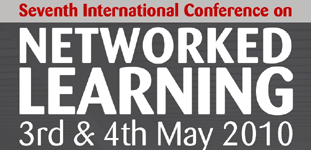

Challenging the Traditional Theorisation on Group Development: An International Online Perspective
Lucilla Crosta, University of Lancaster
Prof. David McConnell, Glasgow Caledonian University
Abstract
The intention of this paper is that of describing and analysing through
a comparative case study, how online learning groups may evolve into online
learning communities. The contexts chosen were two respectively blended
and online Master courses in education delivered in Italy and United Kingdom
(UK). The Research involved the use of Grounded Theory analysis of the
text messages exchanged in the designated course forums. The paper will
present some theorization about online learning group development and
design, it will then illustrate the characteristics of this study and
then its final findings and comparisons challenging the more diffused
theories on traditional and online group development. The theory building
process at the basis of this work involved the construction of new categories
representing the uniqueness of each group and the presence of "stage
of developments”. The main findings are three different Group Developmental
Models: a product-oriented model, a product-process oriented model and
a process-oriented one. This work stresses the uniqueness of each virtual
group and the influence played by the course design of the country in
which each course sits, they are central for the future development of
these groups
The study proposes new theorization about group development with new implications
for teaching and learning online:
- despite each virtual group being unique, its development can be described through key stages and key characteristics crucial to identify the group achievements.
- virtual groups develop with different stages than face-to-face ones;
- virtual groups develop according to the characteristics of the context in which they are embedded and to the course design applied in practice;
- e-learning practice should not underestimate the influence of elements such as: the tutorship, the social relationship, the assessment, the course design, while designing for virtual learning groups; technology plays just a partial influence;
- the complexity of the development of virtual learning groups suggests
the use of an holistic, qualitative and grounded research approach which
preserves differences and makes each group development unique too.
| About NLC | Welcome Messages| Acknowledgwments | Conference Proceedings| Keynote Speakers| Index of Presenting Authors| Contact |